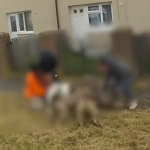Prince Harry “has, unjustifiably, been treated less favourably than others” over his security arrangements when he is in the UK, a court has been told.
The Duke of Sussex is taking legal action against the Home Office over a decision in February 2020 that meant he would no longer be given the “same degree” of personal protective security when visiting.
The decision was made by the Executive Committee for the Protection of Royalty and Public Figures (Ravec).
Shaheed Fatima KC, representing the Duke of Sussex, said in a written submission: “Ravec should have considered the ‘impact’ that a successful attack on the claimant would have, bearing in mind his status, background and profile within the royal family – which he was born into and which he will have for the rest of his life – and his ongoing charity work and service to the public.
“Ravec should have considered, in particular, the impact on the UK’s reputation of a successful attack on the claimant.”
She added: “The claimant’s consistent position has been – and remains – that he should be given state security in light of the threats/risks he faces.”
Harry is not attending the hearing at the High Court, where much of the case will be heard in private over the next three days, with a decision expected at a later date.
Armed officers at scene of ‘serious assault’ in Aberfan, South Wales Police say
Home Secretary James Cleverly arrives in Rwanda to sign new asylum treaty
Pornography websites may have to use photo ID and credit card checks to protect children
Opening the case, his barrister said: “The starting point in this case is about the right to security and safety of a person – there cannot be a right of greater importance.”
She said the duke “has engaged fully and properly with the evidence” and that his “unlawful and unfair treatment” was apparent from the documents.
Harry is asking the court to be treated in the way Ravec “has treated other people”, she said, arguing that Ravec had chosen “not to follow its own written policy”.
She said no Risk Management Board (“RMB”) risk analysis had been carried out, adding: “This is the first time Ravec has ever decided to deviate from its policy in this way.”
Ms Fatima said: “No good reason has been provided for singling the claimant out in this way”.
She also argued Harry was entitled to make representations to Ravec before the decision was made.
Sir James Eadie KC, for the Home Office, said in written submissions that Harry has been treated in a lawful “bespoke” manner over his security arrangements.
He said in making the decision Ravec considers “the risk of a successful attack on that individual”.
“In summary, Ravec considers the threat that an individual faces, which is assessed by reference to the capability and intent of hostile actors, the vulnerability of that individual to such an attack, and the impact that such an attack would have on the interests of the state,” he said.
“As a result of the fact that he would no longer be a working member of the royal family, and would be living abroad for the majority of the time, his position had materially changed.
“In those circumstances, protective security would not be provided on the same basis as before. However, he would, in particular and specific circumstances, be provided protective security when in Great Britain.”
But Ms Fatima argued that “case-by-case” security provision leads to “excessive uncertainty”.
The case is one of five High Court claims Harry is involved in, including extensive litigation against newspaper publishers.
Earlier this year, he was refused permission to bring a further legal challenge against the Home Office over a Ravec decision that he should not be allowed to pay privately for protective security.






















